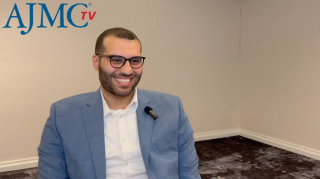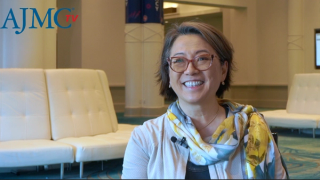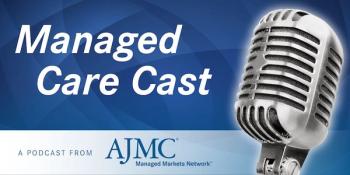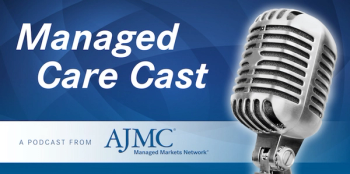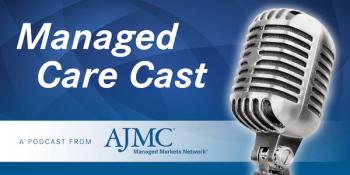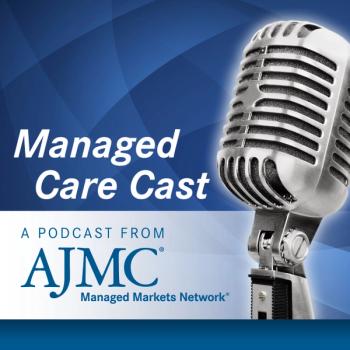
Health Care Cost
Latest News
Latest Videos

Podcasts
CME Content
More News

Net health care costs would also increase by billions of dollars should pre-exposure prophylaxis become less accessible.

Syndromic reverse transcriptase–polymerase chain reaction tests for respiratory infections were associated with lower health care resource utilization and costs, implicating potential for improved value in patient care.

New demands to follow the most favored nation executive order could lead to some compliance but it is unknown just how effective they will be across all health care.

A reduction in HIV incidence is possible with more structured choices for pre-exposure and postexposure prophylaxis being offered to patients at risk of HIV.

In a recent webinar, experts explored the Most Favored Nation mandate’s implications on drug pricing, patient access, and pharmaceutical innovation.

By 2040, advanced metabolic dysfunction–associated steatohepatitis (MASH) is projected to rise by at least 20% in the 9 countries assessed.

Participating hospitals in the Prime Vendor Program and the 340B program spent nearly $37.3 billion more on drugs from 2010 to 2021.

This study of community health workers as clinical extenders demonstrates significant cost savings in managing chronic conditions among Medicaid beneficiaries.

Pulse of the Purchaser 2025 survey results showed the use of transparent PBMs more than doubled in just 1 year, from 12% to 31%.

New guidelines and advocacy enhance myasthenia gravis treatment access, promoting proactive management and improved insurance coverage for diverse patient populations.

More frequent routine primary care visits for certain higher-risk commercially insured adults are associated with lower net population-level health care costs.
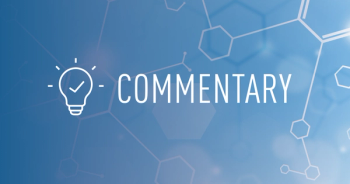
Many states are enacting restrictions on insurers’ prior authorization policies, but these laws may increase costs and lead to other undesirable consequences.

A study finds that $100 rideshare rides for follow-up colonoscopy after fecal immunochemical test (FIT) doubled completion rates, reduced colorectal cancer (CRC) deaths, and lowered health care costs.

Patients with ovarian cancer who undergo BRCA testing face higher health care resource utilization (HCRU) and costs but are more likely to receive genomically targeted therapies and progress to later lines of treatment (LOT).

Psoriasis received the second-most funding of any pediatric dermatology condition, even though it ranked fifth in terms of disease burden.

Why is health care so staggeringly difficult to use? How do we fix it? To move forward, we first must look back, because the system we have today was not really designed, it evolved, notes Ariela Simerman, Turquoise Health.

Housing assistance significantly reduces medical financial hardship for renters with a history of cancer, enhancing their financial security and access to care amid rising health costs.

New research highlights which US counties lead in patient experience, health outcomes, and cost efficiency—and the policies that drive success.
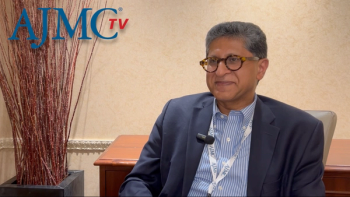
Ravi Vij, MD, MBA, discusses how measurable residual disease (MRD) testing is shaping treatment decisions in hematology and its potential to reduce costs and toxicity.

Ravi Vij, MD, MBA, explains how insurance-related delays in CAR T approval slow treatment initiation, increase interim therapy costs, and contribute to patient burden.

Treatment challenges that Anasuya Gunturi, MD, PhD, encounters in her work at Lowell General Hospital include language differences and confusion about scheduled appointments.

A new study finds that drugmakers’ use of overlapping patents delayed generic entry for 4 top-selling drugs, driving billions in excess spending.

A new report found that 9 of 10 small- to midsize businesses are not sure they will be able to provide health benefits to their employees in the near future.

Employers explore glucagon-like peptide-1 (GLP-1) therapies' impact on health benefits, showcasing accountability and data-driven strategies in Philadelphia, Pennsylvania, and Wilmington, Delaware, for sustainable health programs.

Hospital accountable care organization (ACO) participation did not impact emergency department admission rates, length of stay, or costs, suggesting limited effectiveness in reducing spending for unplanned admissions and challenging hospital-led ACO cost-saving strategies.




